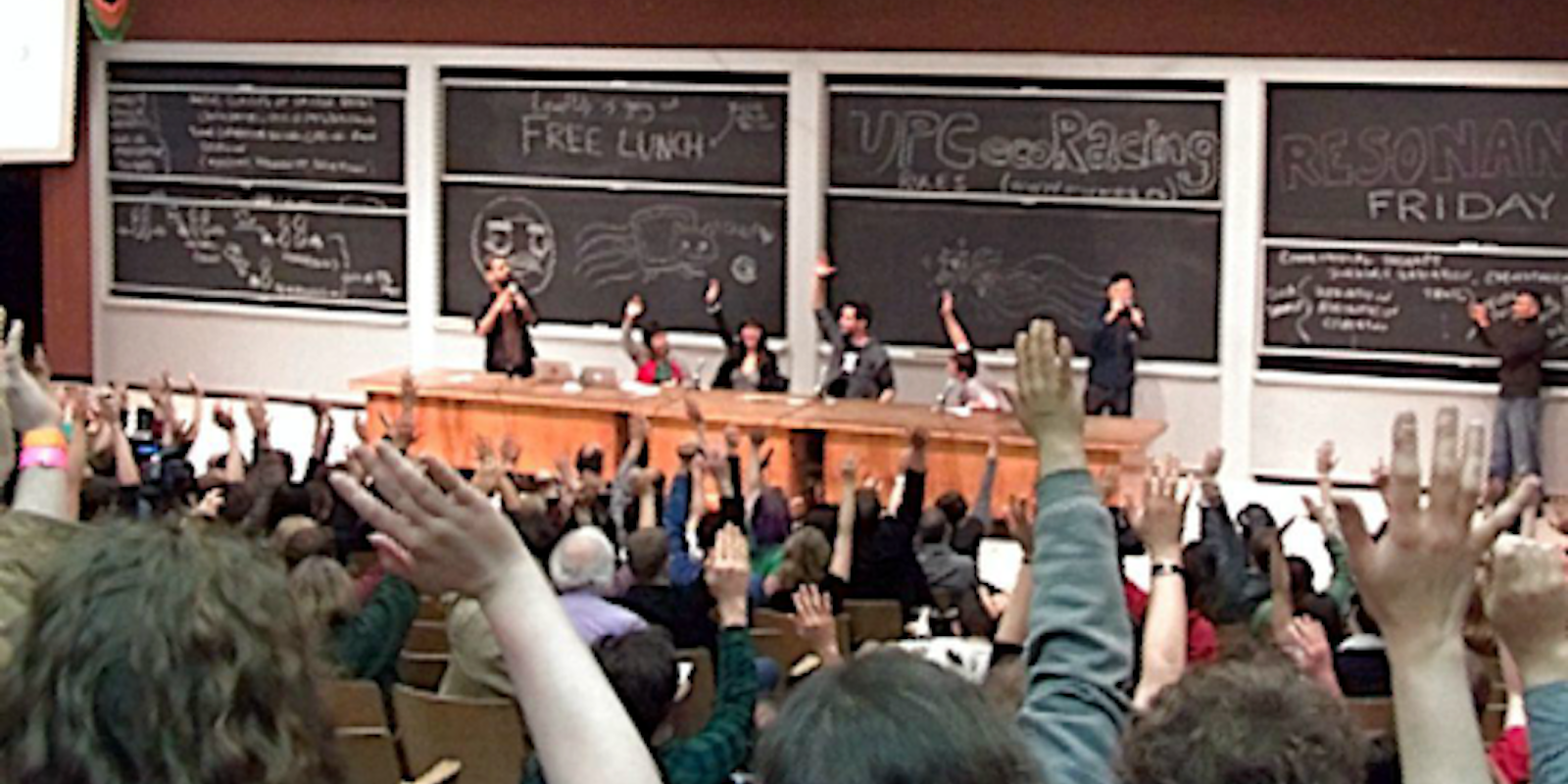Absurdity—sheer ridiculousness—doesn’t get enough respect.
That’s what I kept thinking last weekend at ROFLcon.
The highly engaging opening keynote was delivered by Jonathan Zittrain, cofounder of Harvard’s Berkman Center for Internet and Society and author of The Future of the Internet—And How to Stop It. It was funny, but it also made you think.
Zittrain brought up Bill O’Reilly’s infamous encounter with the president of American Atheists. In the harangue, the Fox News political commentator apparently believed that he delivered an unanswerable argument and did what St. Thomas Aquinas and Descartes failed to do—prove the existence of God. What was the coup de grace in this millennia-long pursuit? The tide. “It comes in, it goes out—you can’t explain that,” O’Reilly said. And a meme was born.
Soon, the Internet, which keeps us all humble, provided many, many things that Bill O’Reilly cannot explain.
In the “conversation” on O’Reilly’s show, there was nothing his opponent could say to actually win the argument. Whatever point of view you have (and for the record, I don’t side with either), if it’s not already O’Reilly’s, you are not going to win on O’Reilly’s show. In other words, O’Reilly can’t be beat by argument.
But the meme shows, he can be made ridiculous.
***
It would be easy to trivialize ROFLcon. It is afterall, a celebration of the trivial, of everything that is ridiculous, absurd, hilarious—everything that makes you roll on the floor laughing. And it was a surreal experience to turn around at a party and be face to face with Scumbag Steve.
But if there was a theme to my experience of the event, it was how quickly the trivial can become significant.
In the Supercuts panel, we were treated to an instance in which the time-consuming hobby became a powerful political statement. Diran Lyons cut together WhiteHouse.gov clip after official clip of President Barack Obama using the word “spending.”
But can a supercut be art? The Columbus Museum of Art thinks so. It commissioned Duncan Robson to create the elegant and eerie supercut, Tumbleweeds. (After hours and hours looking at westerns, Robson told us, he discovered they never showed tumbleweeds in spaghetti westerns, and he’s convinced that the iconic image of a lone tumbleweed blowing through an empty ghost town has never actually been shot.)
You can’t really get more Internet ridiculous than Tron Guy (and I say that lovingly). But it was Tron Guy Jay Maynard who stole the show at the Defending the Internet panel. In a room full of liberals (if the show of hands was any indication), Maynard stood up, identified himself as both a Tea Party conservative and the “poster child for ‘made by the Internet’.” He then delivered an impassioned plea for a non-partisan alliance to protect the Internet. I think everyone in the room was inspired.
Whatever the field, it seems much of the most interesting, engaged, and richest discourse is happening through memes and lulz. Everything from “human rights, gender, prejudices involving homosexuality and race, and even how we deal with rape,” are now vibrant subjects of online discourse through memes, DDoS attacks, and other online antics. Or at least, so they argued in the Lolitics: Memes and Politics panel.
In the Global Lulzes panel, we learned that it is through memes that political activism in China is finding an outlet that even its active government cannot censor.
***
Perhaps ridiculousness is as powerful a force to fight evil as anything. One of my personal favorite memes is the one where people resubtitle Hitler’s rampage in Downfall. We watch one of the most diabolical mass murderers in history screaming about fonts, not getting an iPhone, and being betrayed in Risk.
Could the holocaust have happened, Zittrain asked, in the age of the Internet? Directly opposing Hitler’s evil agenda took decades and a world war. Would his rise have been so inexorable if the Downfall meme (or Draw Something) had existed in 1933?
It reminded me of Stephen J. Dubner and Steven Levitt’s account of the fall of the Ku Klux Klan in Freakonomics.
In the 1940s, the KKK was a major political force, with growing membership and power. In the ’50s, it was deflating like a worn-out balloon. A journalist named Stetson Kennedy infiltrated the Klan, and the Superman radio program ran a series in 1947.
The series didn’t so much expose all the bad things the Klan did; it simply portrayed its codewords, rituals, and special titles, which sound like something out of a bad comic book written by an 8-year-old. Kennedy didn’t destroy the Klan by exposing their evil. He destroyed the Klan by making it ridiculous.
The power of the ridiculous to defeat evil is as great as direct opposition, I think, because on some level the kind of overblown self-importance that is embodied in the Klan’s rituals is an inherent part of it. As long as we can laugh at ourselves, there’s only so bad we can be.
Photo by Nicholas White. The crowd responds to the question, “How many of you have taken some action to oppose SOPA, PIPA, CISPA, or ACTA?”


